Vietnam is a country of festivals. Foreign tourists mostly know about tourism festivals only. There are about 8000 festivals from all the provinces, ethnics and religions. Festivals in Vietnam are where the people show veneration to the gods, mythical characters, national heroes and send their wishes for a better life. In a typical festival in North Vietnam, there are two parts: ceremonial rites and entertaining activities.
Here we want to introduce some really unique or entertaining traditional one.
- Hien Quan Phet Festival
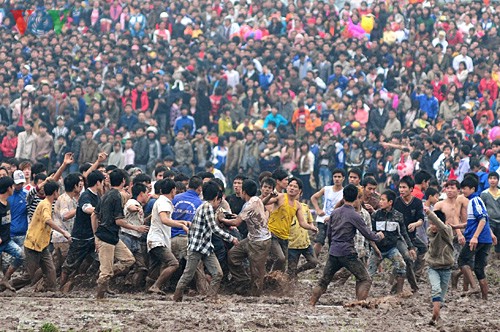
Each year, from the 12th to 13th days of the first month of the lunar year, young men of Hien Quan commune, Tam Nong district, Phu Tho province come to gather for a big match which is called Phet Capture Festival of Hien Quan. This festival originally is dedicated to female general Thieu Hoa who jointed the resistance of Trung sisters. The festival has four parts, unlike common festivals which only have two. First is palanquin procession, second is a ceremonial ritual, next is the parade and last is Phet capture.
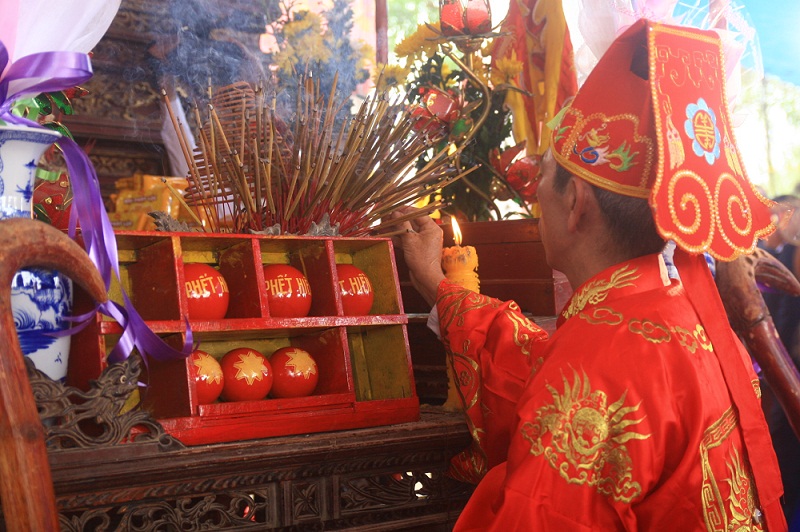
There are two kinds of balls: 3 balls called Phet and 3 balls called Chui. Both balls are made of bamboo and painted with bright red colour. Phet is bigger and most valuable. Before the match begins, the host of the festival will do a small ritual to bring the first ball to a flat and wide empty field. The host and the ball are protected by the players until the host leaves. Phet is like a Snitch ball in Quidditch match, the game ends when one man catches it. A hundred men of Hien Quan literally have to wrestle to catch, steal, and carry the ball to the finish line. The people believe that catching Phet or Chui balls at the beginning of the lunar new year will bring lucks to the winners and his families throughout that year. When one ball is caught and brought over the finish flag, another will be thrown out and it continues until each ball has its own owner.
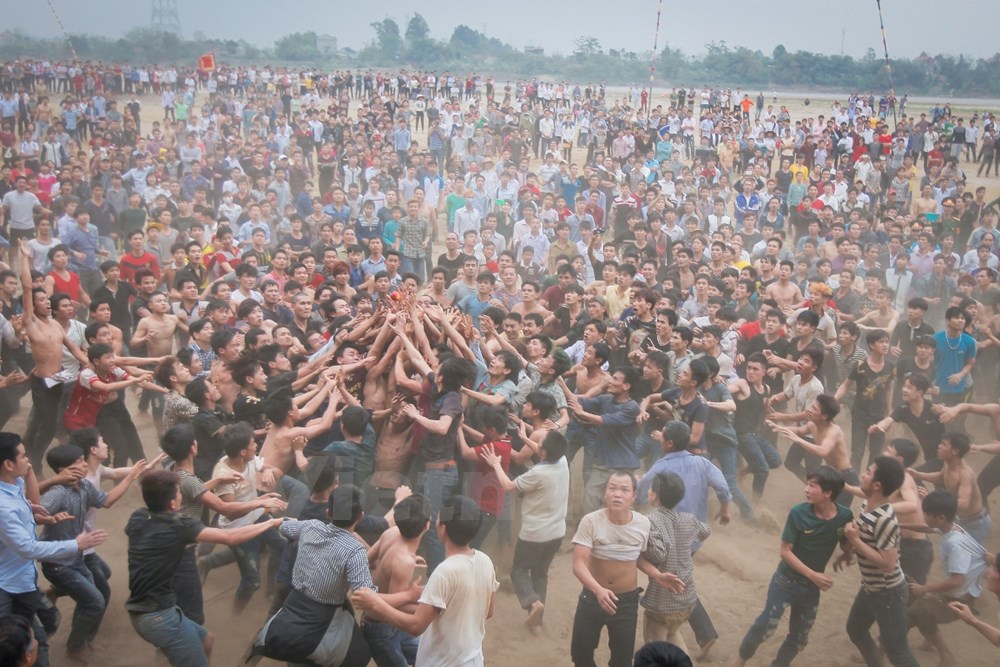
The game Phet Capture has made the festival of Hien Quan much known as one of the most unique festivals in Vietnam but also brought bad reputation, mostly because of the violent behaviours of the players during the game. Besides the main event, there are other traditional games such as rice cooking, ball throwing, rice cake pounding….
- Fire Dancing Festival of Pa Then people
Fire dancing of Pa Then people in Ha Giang province feels more like a religious experience. The festival is invented by Pa Then people who live mostly in the northeast of Vietnam with a population of about 5000. Fire dancing is very close to a shamanism cultural activity where the dancers let the gods possess their bodies to dance on fire unharmed.
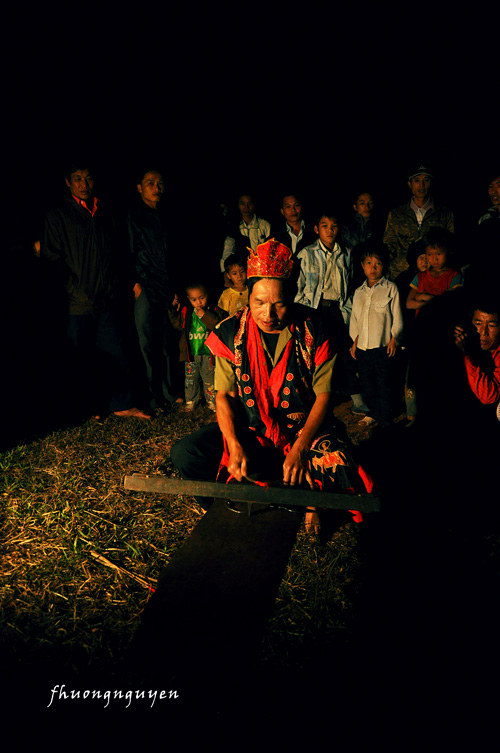
Pa Then people hold this event often from the middle of 10th month of the lunar calendar to lunar new year. This festival to Pa Then people is just as significant as the new rice festival of Thai people. Through this important event, Pa Then people show courage, strength, masculinity, and power of humans in the fight against the harshness of nature. At the same time, the people express their gratitude via their brave dance to the sky, the earth and the gods for a year of good weather and fortunes.
As one of 12 national festivals with important cultural values and significance, Fire Dancing festival and its authenticity are well reserved. There are two parts of the event: rite and fire dancing. The first part lasts for about 1 to 2 hours and the second must starts at night. A fire is inflamed and a shaman will send prayers to the divines from above. Through his praying, he calls for the gods, asking for their superpower which will help the dancers dance barefooted in the flame without being burnt. There are only fit men to be allowed to dance on the fire like this. They believe that if a woman does this fire dancing, she will dance nonstop for seven days so nowadays, only men join the festival. Pa Then men will sit close to the shaman, facing the fire and shaking while listening to the praying. The shaman shall tap a wooden instrument on a wooden bar with a fastening tempo. And when both the shaman and the dancers are seemed to be processed by the gods, the fire dance shall begin. A Pa Then man then would start to jump towards the fire matching with the sound from the shaman. He will grab a burning wood and throw it away. He comes back to jump right into the fire then backs off immediately. The dancer repeats the act for few times then returns to the shaman and another dancer will continue. One dancer can join the dance several times, thus showing their strength and agility. Visitors are welcomed to join the dance to show courage and strength.
- Elephant Racing Festival
Elephant racing festival is a traditional festival of many ethnic minorities in Daklak province. The event is held once every two years in March causing a scene full of vim and vigour.
From 12th to 14th March, the festival is dedicated to the gods in wishes for a bumper harvest and good year of fortunes. At the same time, the people of Central Highlands, through this festival, want to show their skills and intelligence in elephant training. The main race is held on a vast and flat field of Don village near Yokdon national park or Serepok river. Before the race, the elephants were fed with vegetables and rested to be in its best form. To many ethnic minorities in central highlands, wild elephants are much respected and only wealthy families process and tame elephants and consider them as the epitome of the clan’s power and family’s prosperity. The rite is prepared briefly and the elephant race gets all the attention. The elephants will be competing in running, swimming and soccer. Running track is about 400-500 meter wide and 1-2 kilometre long. There are 2 racers riding on the elephant in charge of making the elephant run in the right track and speed up at the right time. From afar, you can already see and hear the ethnic people wearing their traditional costumes cheering for the racers on both sides.
After racing on land, elephants will compete in swimming in the great Serepok river, soccer and tug of war.
- Do Son Buffalo Fighting Festival
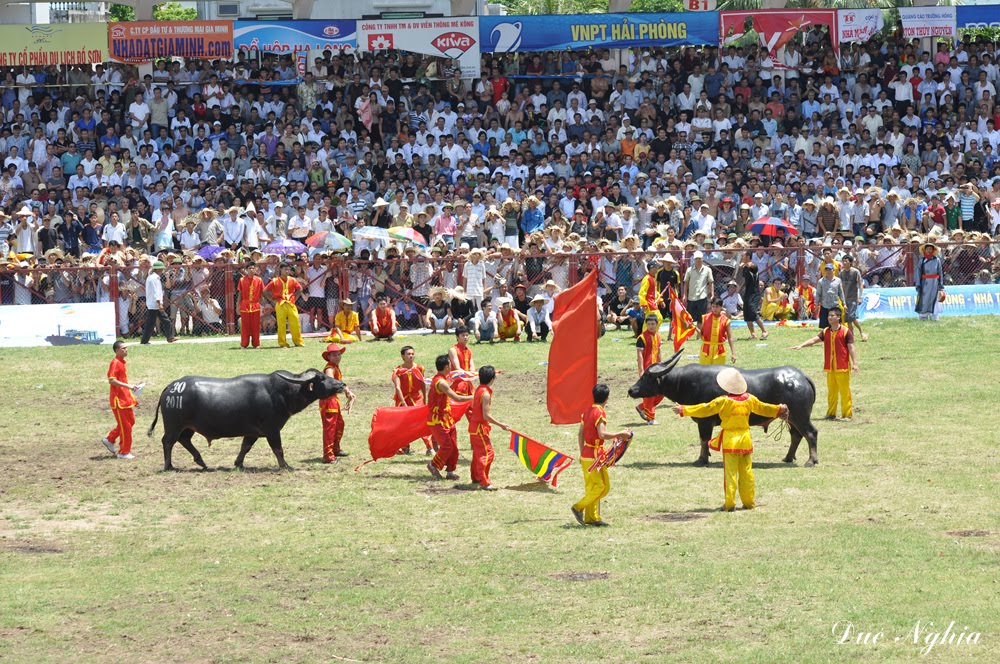
Buffalo fighting festivals are common in North Vietnam. The most well known and most ancient one must be Do Son buffalo fighting festival held annually on the 9th day of the 8th lunar month. The legend on this festival tells that at the bottom of a mountain in Do Son there is a temple of Water God, once two buffaloes were seen fighting at the gate of the temple. Since then, Do Son buffalo fighting festival was held annually from 18th century till this day. This festival is dedicated to the Water God as a belief of locals that buffalo fighting is in favour of the guardian gods. The people through this festival send their wishes for safe voyages, health and wealth.
The preparation before the festival is just as important as the fight. Finest buffaloes are chosen and bought from all over northern provinces like Thanh Hoa, Nghe An, Nam Dinh, Thai Binh. All are brought to Do Son to be trained for months before the real battles take place.
On 9th day of 8th lunar month, an area is opened for the audience and the fights will be broadcasted. The festival has two parts like many other Vietnamese festivals. The rite begins with the elders carrying out a ceremony towards Diem Tuoc God with participants from all the villages which send buffaloes to fight. After all ceremonies, the buffaloes are led to Village Halls, here they are called “Sir Buffaloes”. A traditional dance with sounds of drums and cymbals takes place before the battles begin. First two buffaloes are led to two opposite gates and after the signal ends, they will run to the field and fight until one buffalo give up and run away. In the end, the champion buffalo will be killed just like other fighters in a ceremony worshipping Water God. Do Son people believe that the winning village will have a very good year ahead full of good fortune and security.

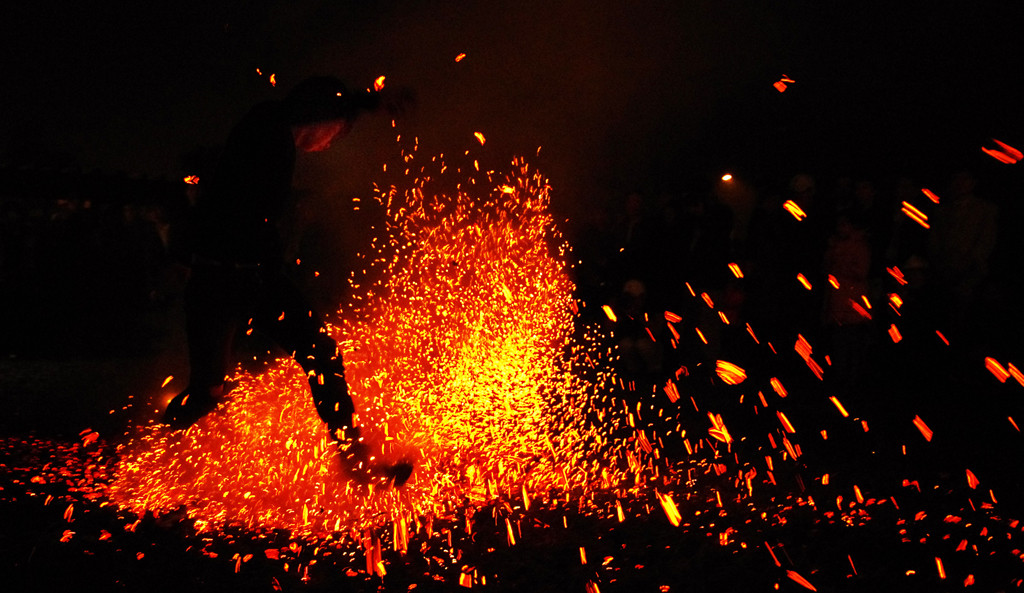
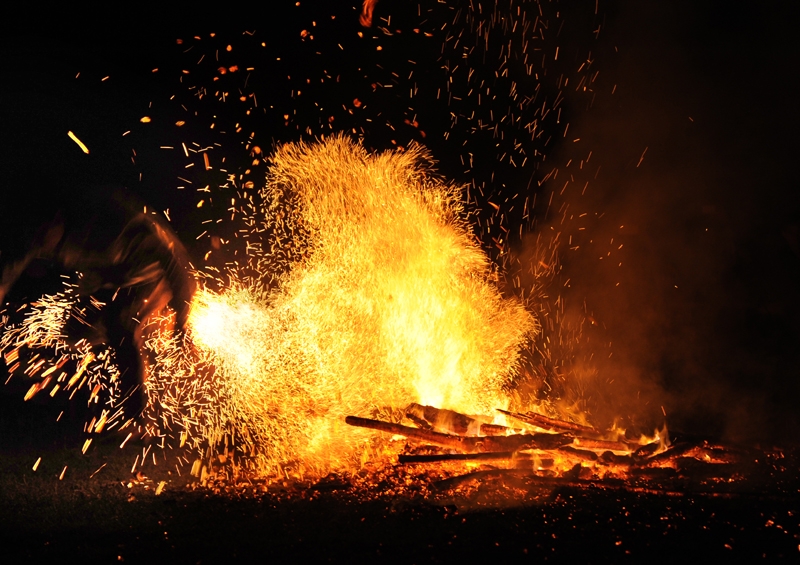
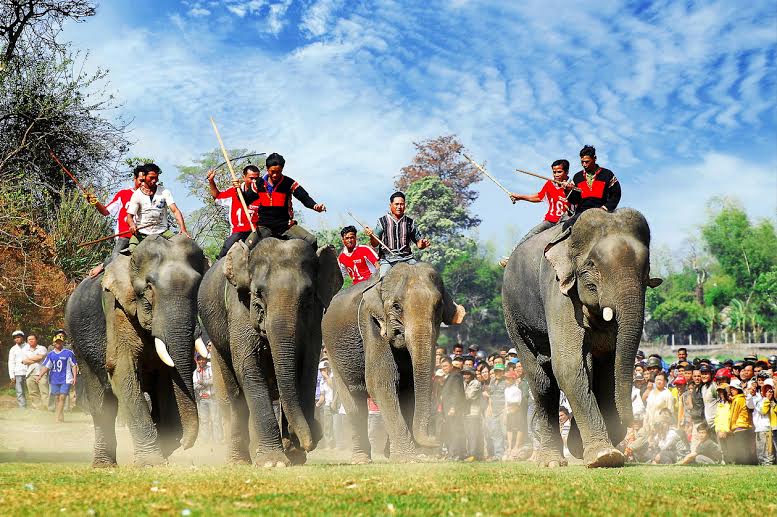
[…] traditional and ancient cultural festivals, some annual tourism activities are worth your […]
[…] people spend the whole second month of the lunar year to hold many traditional festivals across the […]